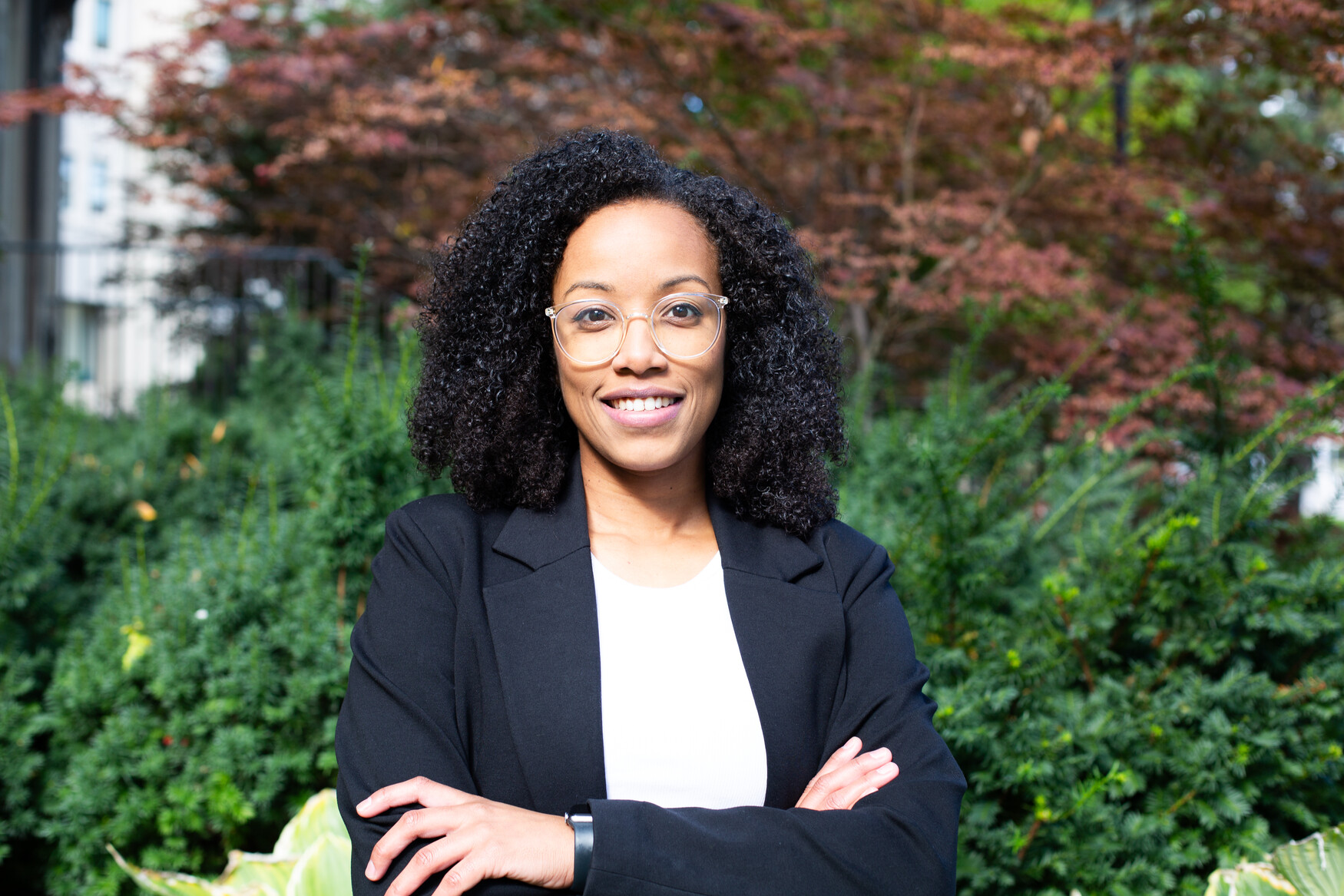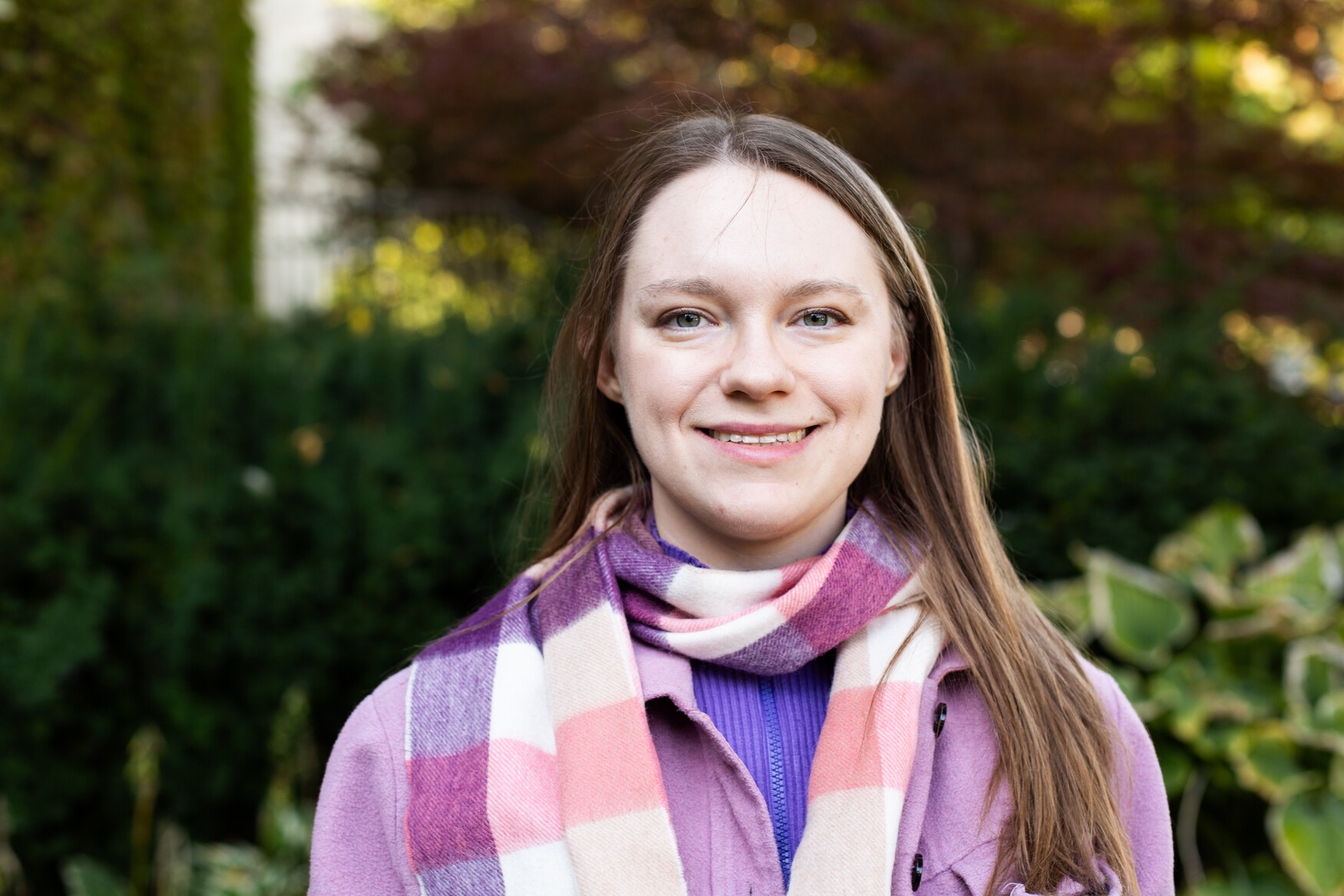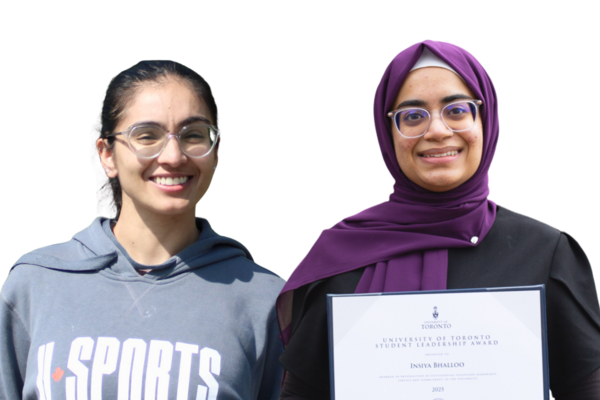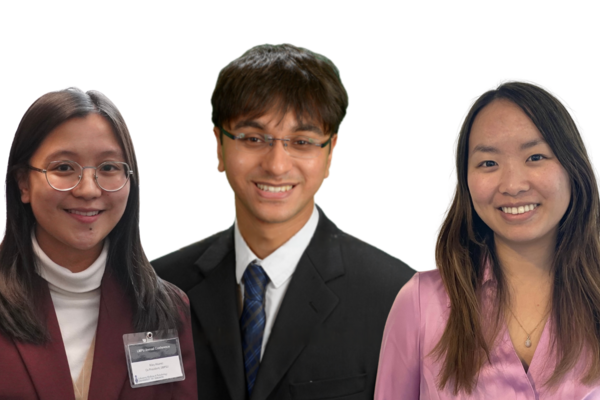Main Second Level Navigation
Breadcrumbs
- Home
- News & Events
- News
- Temerty Medicine Research and Health Science Education class of 2024: Two graduates share their stories
Temerty Medicine Research and Health Science Education class of 2024: Two graduates share their stories
As they stand on the threshold of their convocation, writer Sarah McMahon caught up with two exceptional graduate students from the Research and Health Science Education (RHSE) community in the Temerty Faculty of Medicine. They spoke about what brought them to Temerty Medicine, what they have learned and the advice they have for incoming students.

Juliana Nunes da Silva, MSc in Rehabilitation Sciences
What inspired you to complete a graduate degree in Rehabilitation Sciences?
My decision to pursue a graduate degree in Rehabilitation Sciences was inspired by my experience as a physiotherapist in Brazil, where I noticed differences in rehabilitation adherence between men and women. Working in public and private hospitals also showed me how socioeconomic factors impact access to care and recovery outcomes.
After moving to Canada, I worked as a Clinical Research Assistant at the Toronto Rehabilitation Institute, where I deepened my understanding of sex and gender disparities in stroke rehabilitation. Being involved in this program and co-authoring a paper on sex differences in exercise completion, further fueled my passion for investigating and addressing these imbalances. I became especially interested in improving access to rehabilitation for women and other underrepresented groups.
What was your favourite part of being a graduate student in the Temerty Faculty of Medicine?
My favourite part of being a graduate student in Temerty Medicine was the strong sense of community and collaboration. I was surrounded by passionate peers, professors and mentors who inspired me to push my limits. The support and resources for personal and professional growth made the journey fulfilling and exciting.
What is coming up next for you?
I am currently working as a physiotherapist resident in a few private rehabilitation clinics, but I plan to return to school in 1-2 years to pursue my PhD, while also working as a PT.
Having finished your degree, what would you say to your first-year-of-grad-school- self?
Believe in yourself and trust the process, even when things feel challenging. It’s normal to feel overwhelmed, but when you do, take a step back and prioritize your mental health. Don’t hesitate to ask for help or talk to someone—whether it's a mentor, a peer, or a counselor—before you burnout.
Taking care of yourself is just as important as the work you’re doing. Recognize that the journey involves ups and downs, but each step is part of your growth. Celebrate the small wins and give yourself credit for the amazing work you’re doing because you deserve it. Remember, you’re here for a reason, and your contributions matter.
What advice do you have for incoming students?
My advice for incoming students is to build a support network to help you through the challenges you will encounter. Manage your time wisely; set boundaries to protect your mental health and avoid burnout. When things feel overwhelming, take breaks and ask for help before you’re exhausted.
Celebrate your small victories and give yourself credit for the effort you’re putting in. Trust the process, stay resilient and know you can achieve great things.

Ashley Campbell, PhD in Molecular Genetics
What inspired you to complete a graduate degree in molecular genetics?
My love of virology inspired me to complete my PhD in molecular genetics. I had an amazing experience in my undergraduate degree, learning about the different types of viruses that infect humans.
I wanted to learn more about how viruses change the cells they infect. I also developed a love for RNA-biology and, when I learned that there was a project where I could study both, I knew I had to pursue it.
What was your favourite part of being a graduate student in the Temerty Faculty of Medicine?
My favourite part of being a graduate student in Temerty Medicine was learning from researchers in many fields. I was able to talk about my research project with experts in my field of study. It was great to be able to learn from them and receive guidance on my research and career.
What is coming up next for you?
I am currently doing a postdoctoral fellowship with Lori Frappier, professor of molecular genetics and Canada research chair in molecular virology, with the goal of continuing the research I started during my PhD.
I am also a course instructor for two courses in the department of molecular genetics. Teaching has always been a passion of mine and I am very grateful to have this opportunity to give back to the community.
After my postdoctoral fellowship and teaching responsibilities, I would like to pursue a teaching-stream faculty position, or continue research where I can also teach topics such as virology, microbiology and lab-based learning.
Having finished your degree, what would you say to your first-year-of-grad-school- self?
I would tell my first-year-of-grad-school-self to be more reflective on the journey. It’s important to take a moment to stop and think about what is working and what could be better.
This would include trying to be more aware of my mental health and well-being too. I would tell myself that it is okay to feel "imposter syndrome," that it is all a part of learning!
What advice do you have for incoming students?
I would advise incoming students to make sure that you are taking time, not just for your research, but also for yourself. You are more likely to excel in your research when you take care of yourself! I would also advise you to network throughout your time here. You never know which connections are going to help you later on.


